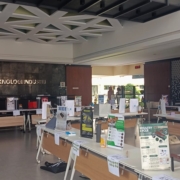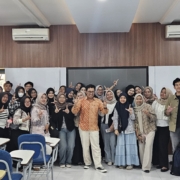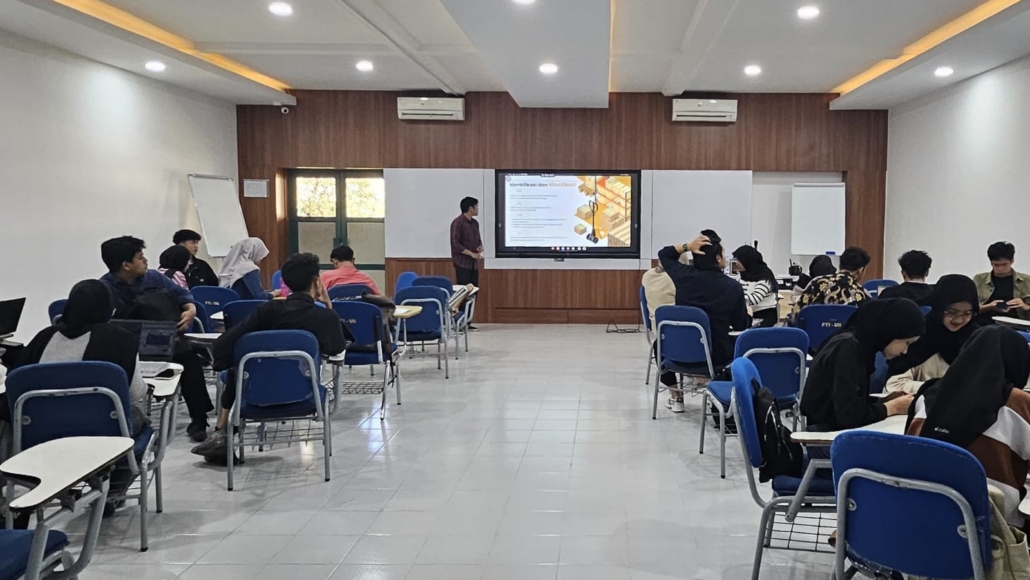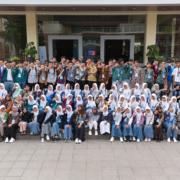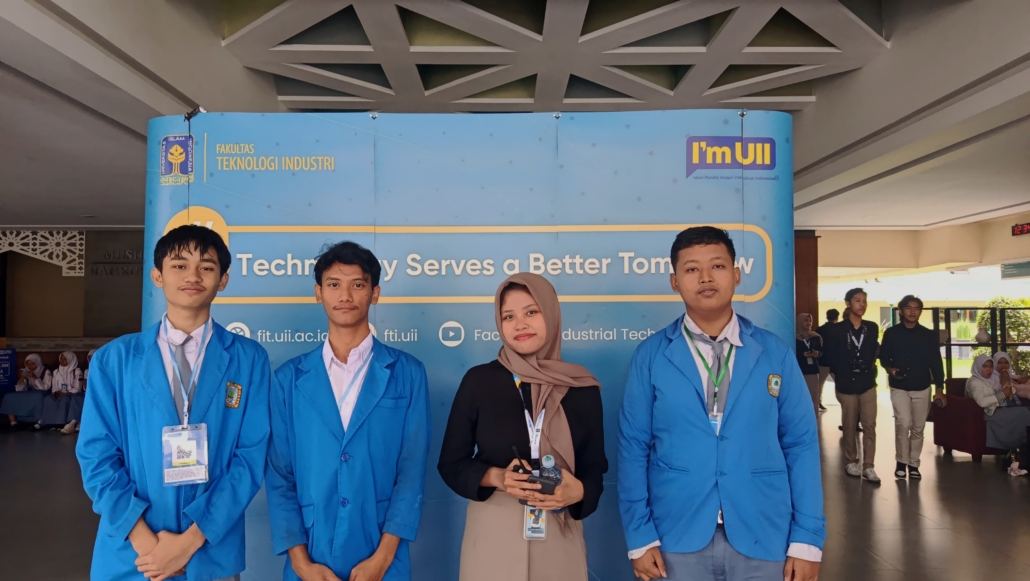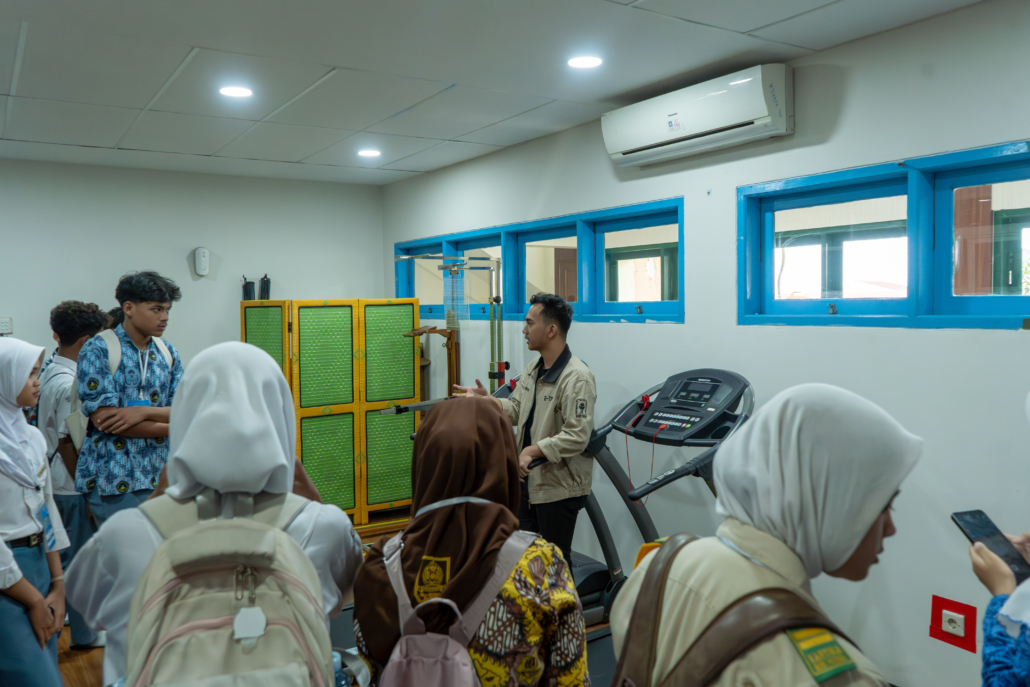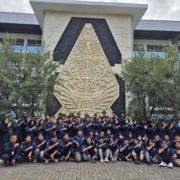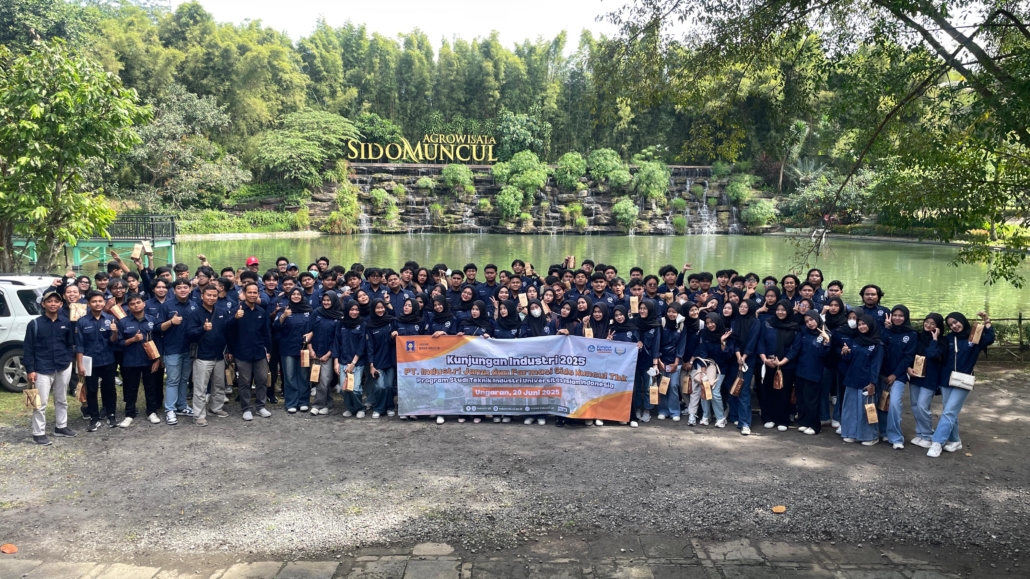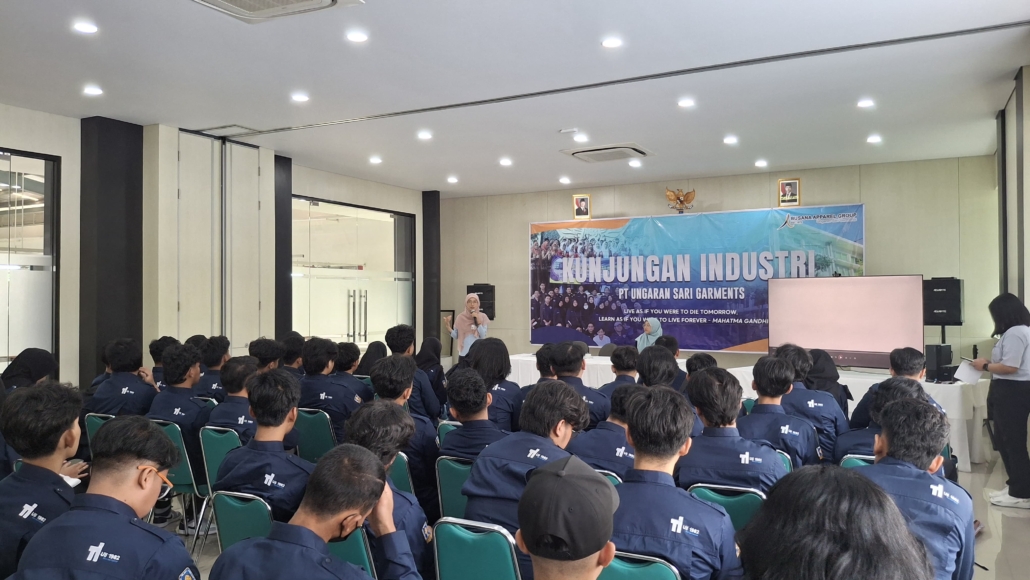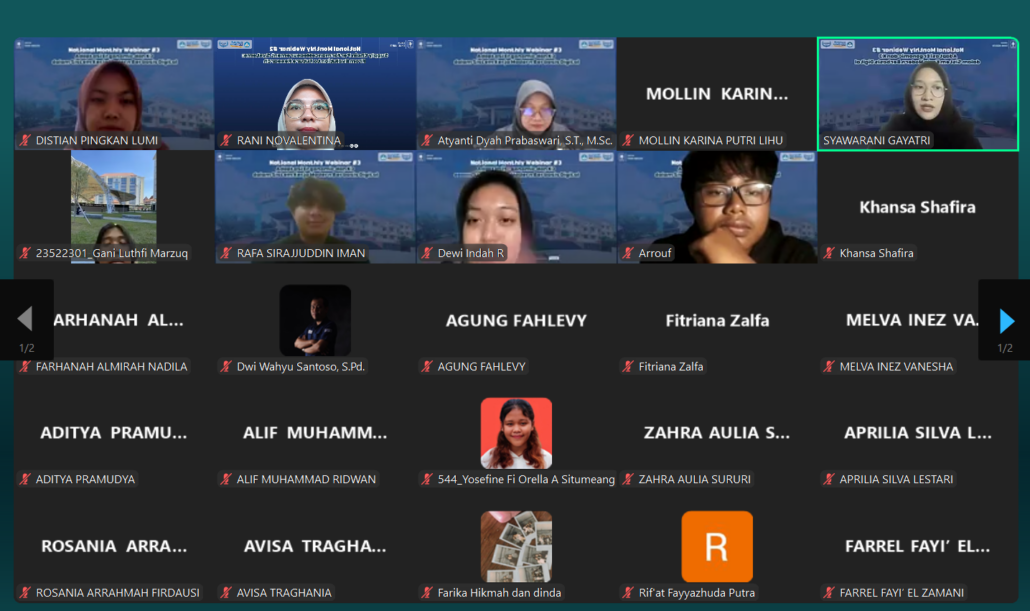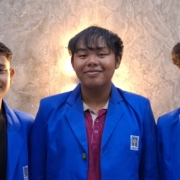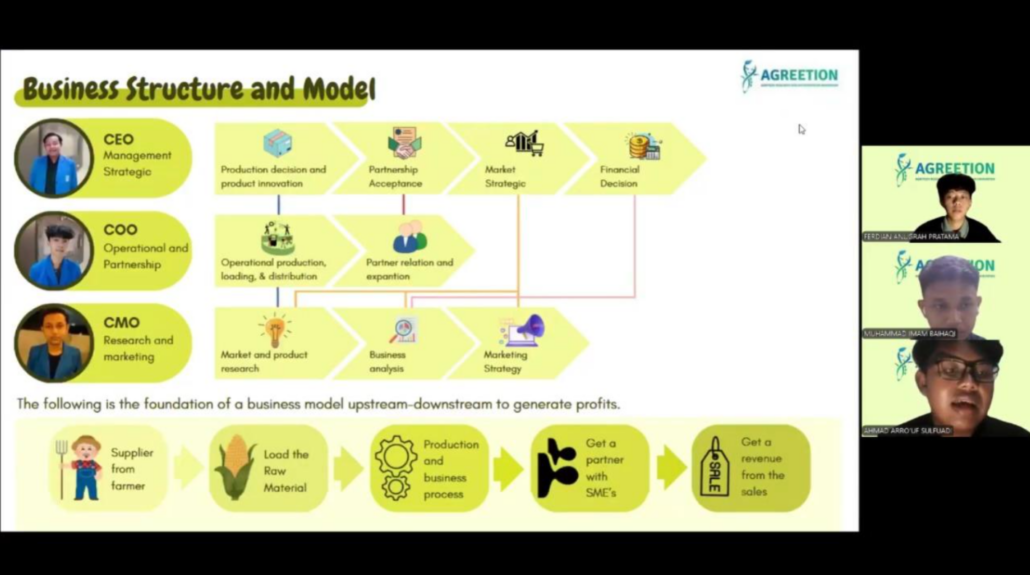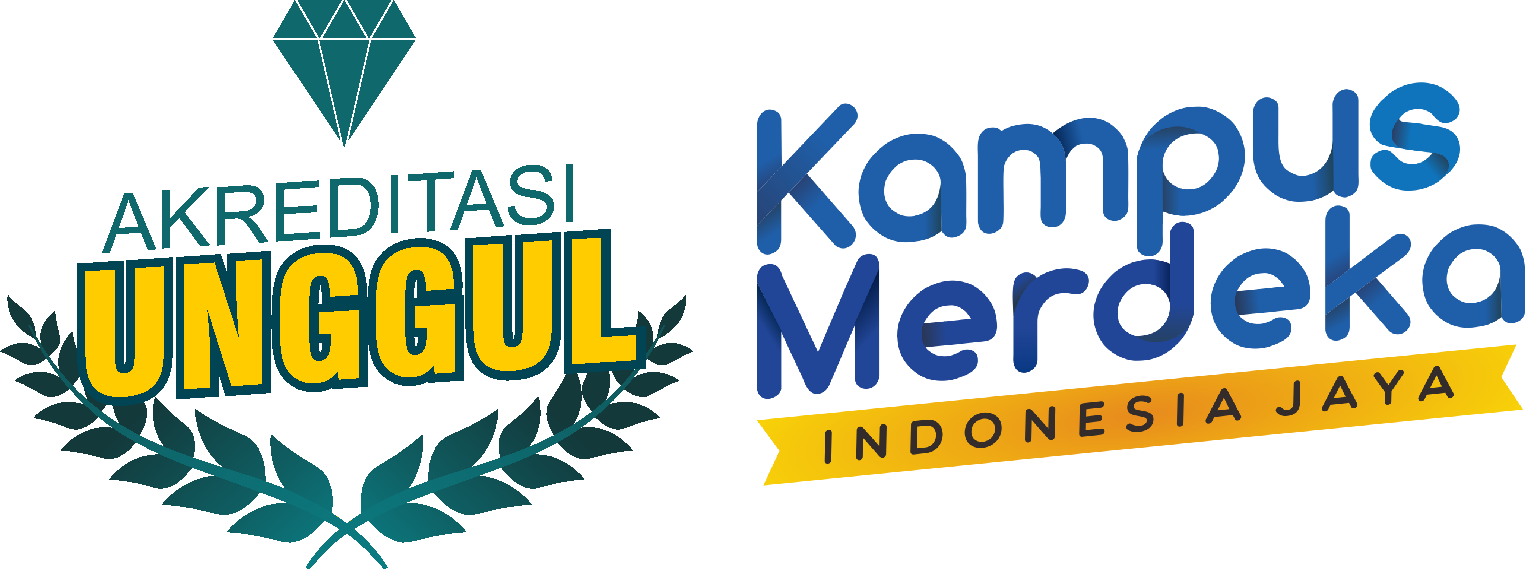Sixty-two teams of Industrial Engineering students from the Faculty of Industrial Technology (FTI), Islamic University of Indonesia (UII) showcased their innovative product designs at the RSKE 2025 Big Project EXPO, held at the FTI UII Hall on Friday, July 25. With the theme “Innovation of Multifunctional and Sustainable Design for Easy Life and Eco Friendly,” the event marked the culmination of the Ergonomic Work System Design course. Moreover, it served not only as a final project presentation, but also as a platform for students to offer real solutions to real-world problems, using design principles rooted in ergonomics, sustainability, and multifunctionality.
To begin with, the event was officially opened by student hosts Ulvi Sakinah and Gerren Satrio Hariyudho, representing the Work System Design & Ergonomics Laboratory (DSK&E) as organizers. The opening featured a prayer and welcoming remarks from Prof. Dr. Ir. Hari Purnomo, M.T., IPU, ASEAN.Eng, Dean of FTI UII. In his speech, Prof. Hari encouraged students to see this EXPO as more than just a class requirement.
“This is a chance for students to grow beyond theory—to start becoming innovators who are aware of real-world issues and can deliver sustainable, tech-based solutions,” he said.
Student Innovation at RSKE EXPO
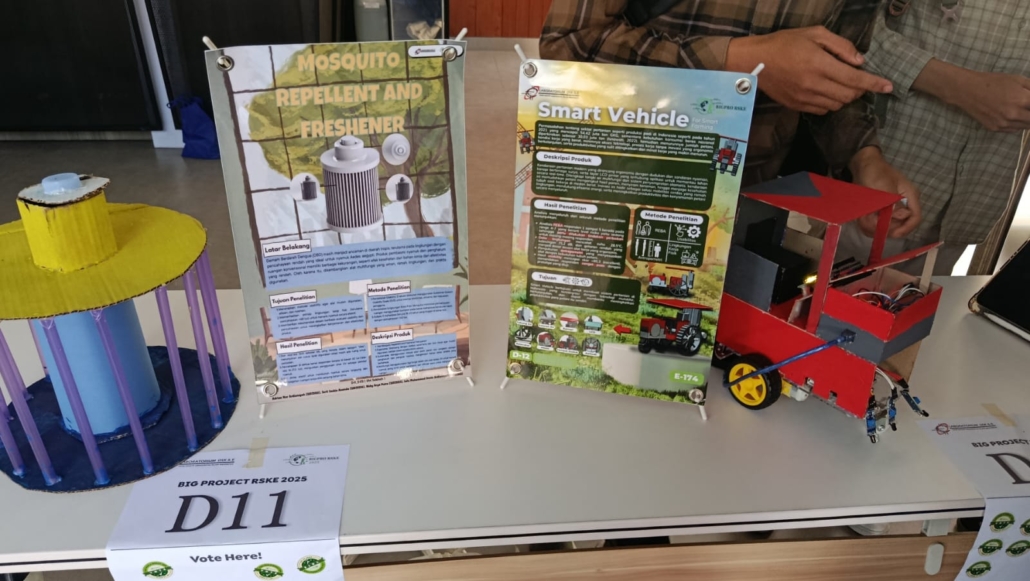
Moving on to the highlights, the main attraction of the EXPO was the student product showcase, where each prototype was assessed by a panel of judges. Among the standout projects was Group D12, winner of the Best Innovation 1 award.
Their creation: an ergonomic tractor powered by solar energy, designed to help improve farmers’ working posture and reduce the risk of injury. It incorporates eco-friendly materials and uses solar panels and lithium batteries as its energy source.
Interestingly, the idea stemmed from one team member’s observation of poor posture among farmers in their community. From that, the team set out to design something practical—and meaningful.
“We wanted to build something that’s not just useful, but also inspires Gen Z to reconnect with agriculture,” said Hammam Rizqullah Maulana, team representative.
Impressions and Appreciation
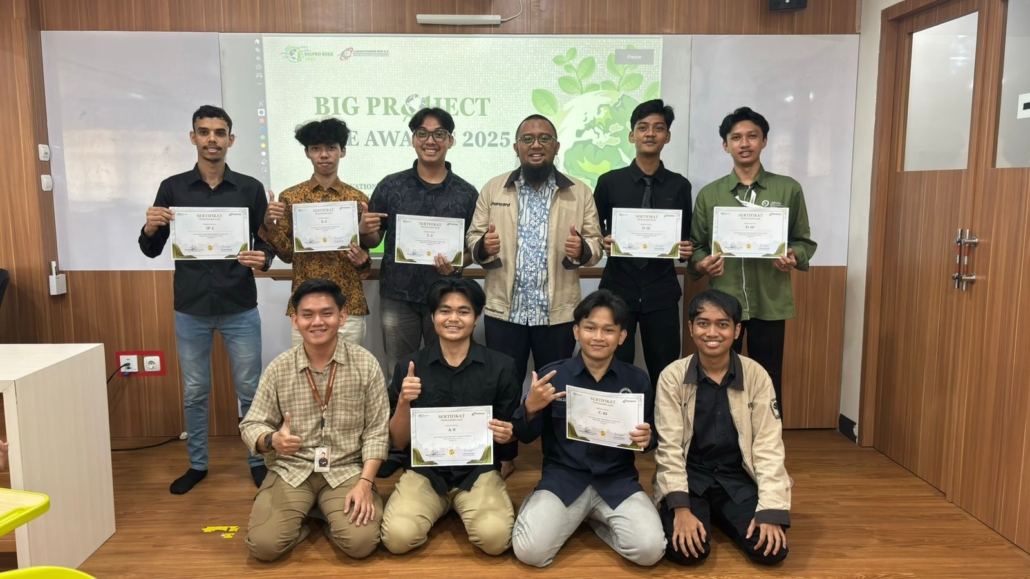
In terms of responses, the EXPO drew visitors from both within and outside the Industrial Engineering department. One of them, Maisya Thara Lail, a Communication Science student, shared her thoughts:
“Honestly, I’m amazed. I don’t come from a technical background, but seeing how these students turned ideas into real prototypes is just impressive,” she said. She added that she hopes the event becomes an annual tradition.
Meanwhile, Felix Rasyada Rafif, the event coordinator, expressed his gratitude for the students’ hard work and the overall success of the EXPO.
“I’m incredibly proud of the 2023 class. Their ideas were creative, diverse, and full of innovation,” he said.
Felix also emphasized the importance of continuing the development of these projects, potentially entering them into wider competitions. Furthermore, he applauded the strong enthusiasm from both visitors and students, especially how actively participants explained their designs and engaged with the audience.
The Winner
In conclusion, the wide range of projects displayed at the EXPO reflected more than just technical skill. They showcased the students’ sense of social responsibility, their commitment to sustainability, and their ability to translate theory into real-world solutions.
To recognize their outstanding work, the organizing committee awarded several teams for the most impressive and impactful designs. Specifically, the following teams were among those honored at this year’s EXPO:
| Achievement | Kode Kelompok | Nama | NIM |
|---|---|---|---|
| Best Innovation 1 | D12 | Scheva Ghifara Derossi | 23522214 |
| Hammam Rizqullah Maulana | 23522236 | ||
| Muhammad Zaki Hosam Daifullah | 23522153 | ||
| R. Nabila Wirda Ayuningtyas | 23522150 | ||
| Best Innovation 2 | D10 | Nasywa Ar Ridho | 23522300 |
| Alan Bayu Kusuma | 23522266 | ||
| Rahmalia Yunita | 23522105 | ||
| Elviana Dewi Khusna | 23522092 | ||
| Best Innovation 3 | B3 | Ferdian Anugrah Pratama | 23522251 |
| Muhammad Afif Yusfian | 23522278 | ||
| Ahmad Arro'uf Sulfuadi | 23522279 | ||
| Gani Luthfi Marzuq | 23522301 | ||
| Best Innovation 4 | E2 | Sang Adji Paco Labib | 23522168 |
| Muetya Azzahra | 23522233 | ||
| Muhammad Wildan Itsna Asyifa | 23522209 | ||
| Ersa Alviani | 23522221 | ||
| Best Expo | A9 | Rofiq Burhan | 23522228 |
| Muhammad Naufal Akbar | 23522229 | ||
| Reza Anugrah Putra Ramadhan | 23522242 | ||
| Best Presentation | IP 1 | M Rifky Habibi Zulfy | 23522276 |
| Badr Aldeen Al-khazan | 23522258 | ||
| Jean De Dieu Habumuremyi | 23522259 | ||
| Adiyasa Bagus Wicaksana | 23522053 | ||
| Best Prototype | C10 | Ilham Nugraha Adi Susanto | 22522295 |
| Aditya Zakki Nugroho | 22522315 | ||
| Herdias Maulana | 22522339 | ||
| Rian Adi Nugraha | 22522021 |
Syawarani Gayatri

